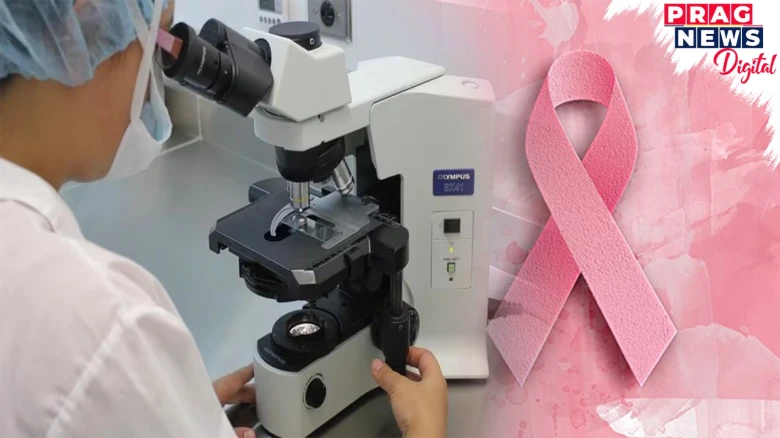Research supports the notion that a higher number of cells might contribute to the increased cancer risk observed in taller individuals...
Digital Desk: Recent research reveals that taller individuals may face a higher risk of developing certain types of cancer. According to the World Cancer Research Fund, there is strong evidence linking increased height with elevated risks for several cancers, including those of the pancreas, large bowel, uterus (endometrium), ovary, prostate, kidney, skin (melanoma), and breast (both pre-and post-menopausal). But why is this the case?
The UK Million Women Study provides significant insight, showing that for 15 out of 17 cancers studied, the risk increased with height. Specifically, each ten-centimeter rise in height corresponds to about a 16 percent increase in cancer risk. For instance, if about 45 out of every 10,000 women of average height (around 165 cm) develop cancer annually, this number rises to approximately 52 per 10,000 women who are 175 cm tall. While this represents a modest increase in risk—just an additional seven cases per 10,000—the trend is clear.
Another study corroborates this finding, indicating that 22 out of 23 cancers are more prevalent in taller individuals. This pattern persists across various ethnicities and income levels and is evident even in studies considering genetic height predictors. These consistent results suggest a biological connection between height and cancer risk.
Several theories attempt to explain this association. One prominent theory is based on the idea that taller people have more cells. For example, a taller person will have a larger bowel, which means more cells and, consequently, more opportunities for cellular damage and mutations that could lead to cancer. Cancer development is generally understood to result from the accumulation of genetic damage over time, especially as cells divide and proliferate. Therefore, having more cells could increase the likelihood of such genetic errors occurring.
Research supports the notion that a higher number of cells might contribute to the increased cancer risk observed in taller individuals. This could also explain why men, who are generally taller than women, have a higher incidence of cancer.
However, not all research aligns with this theory. Some studies indicate that height does not necessarily correlate with the size of all organs, such as breasts or ovaries, and thus may not fully explain the cancer risk linked to height. A study attempting to correlate organ mass with height and cancer risk found that while organ mass accounted for the height-cancer relationship in eight of fifteen cancers, it did not in seven others. This study was limited by the available data on organ mass.
Another possible explanation involves a common factor that influences both height and cancer risk. One candidate is insulin-like growth factor 1 (IGF-1), a hormone crucial for growth during childhood and continued cell growth and division in adulthood. Elevated IGF-1 levels have been associated with a higher risk of certain cancers, such as breast and prostate cancer. Nonetheless, this association is not consistent across all cancer types.
It is likely that both theories—more cells and higher IGF-1 levels—contribute to the observed relationship between height and cancer risk. More research is needed to fully understand how these factors interact and whether other mechanisms might also play a role. As science continues to explore these connections, understanding the precise biological reasons behind the height-cancer link could lead to better prevention and treatment strategies.

Leave A Comment